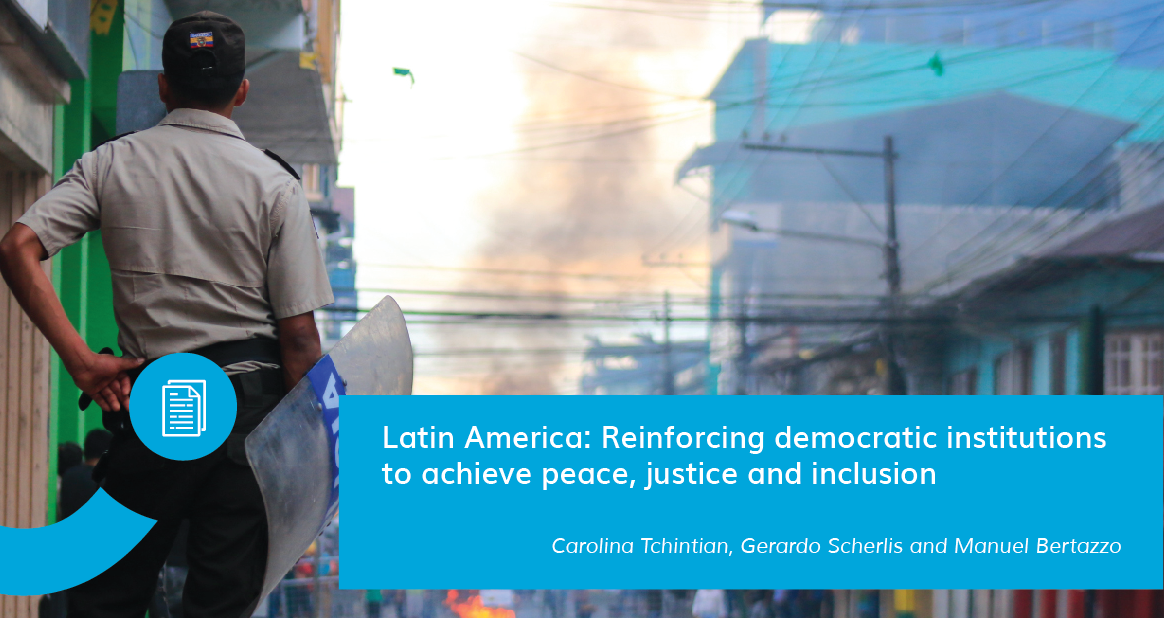The Sustainable Development Goals (SDGs) for the 2030 Agenda for Sustainable Development are not only an agenda belonging to either…
Latin America has been deeply impacted by the COVID-19 pandemic. On a positive side, with a few notable exceptions, the region has avoided democratic breakdowns: electoral institutions have shown resilience, and states have been generally able to adapt to the new and unprecedented situation. In many cases, technology has played a central role in the response to the pandemic. At the same time, the pandemic has substantially exacerbated pre-existing negative trends of democratic erosion. State capacities have been significantly affected, social exclusion and marginalization have in- creased, and civic space is shrinking in some contexts. The pandemic has led to the region moving even further away from achieving SDG 16 in two inter-related ways: i) by starkly exposing and deepening state fragilities, and ii) by rein- forcing divisive and polarized politics. This policy brief analyses the current status of SDG 16 in the region in light of the COVID-19 pandemic and calls for a rethink of the social contract to tackle the redistribution of power and opportunities both horizontally and vertically. This requires first, putting accountable, effective and responsive institutions grounded in the rule of law at the centre of “building forward better” from the pandemic, and second, generating incentives that foster cooperative and inclusive policy-making to put the region on track to achieve SDG 16.


